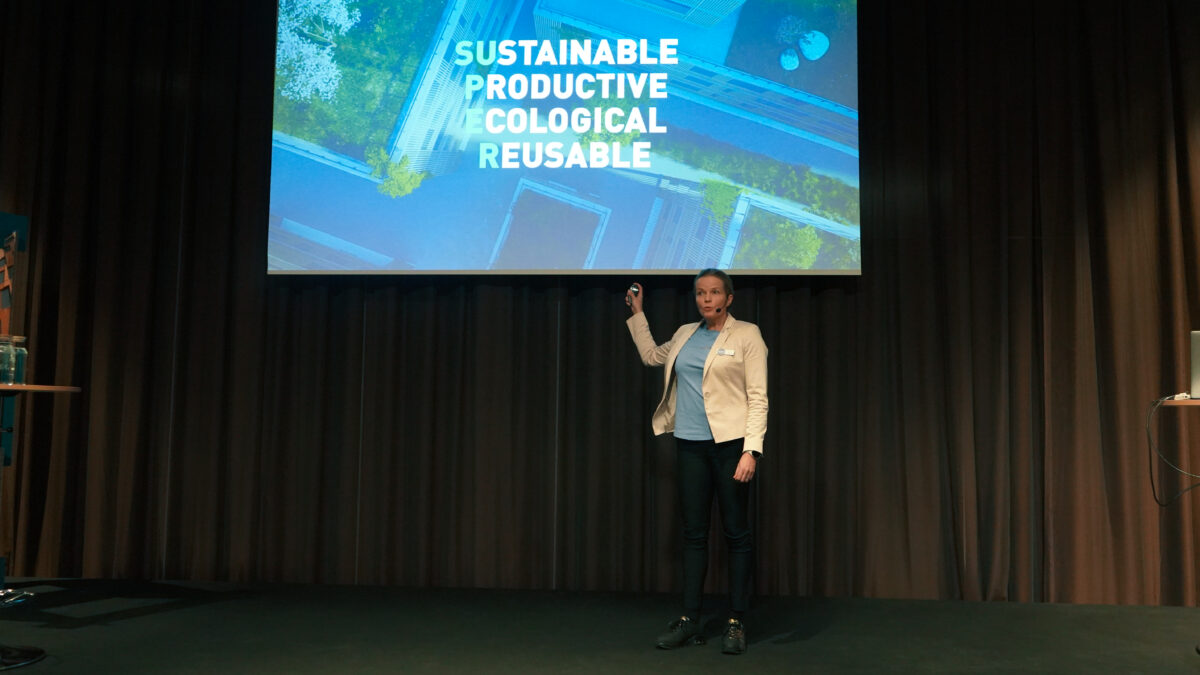Building a circular economy requires new business models and a holistic approach to the life of a material. Raija Polvinen, Chief Ecosystem Officer, and Peter Forsberg, R&D, Quality and Environment Manager, are looking for innovative partners who want to collaborate long-term to create sustainable products and processes throughout the value chain.
Kiilto has launched an innovative ecosystem, SUPER Healthy Buildings, that can change the way we look at building materials and renovations. At Byggmaterialdagen event in Stockholm, Kiilto's Chief Ecosystem Officer, Raija Polvinen, talked about an innovation process for circularity of building materials and what it takes to achieve a truly sustainable life cycle.
Launch of SUPER Healthy Buildings
During the autumn, Polvinen has been involved in launching the SUPER Healthy Buildings ecosystem in the Nordic and Baltic countries.
– SUPER Healthy Buidlings is not a product that can be sold, but rather an approach. Ultimately, the concept aims at collaboration between actors through the construction process and the value chain to create a good and sustainable living environment, explains Raija Polvinen.
A new way to renovate
Raija explains what is planned as part of SUPER Healthy Buildings by demonstrating the innovation Debonding on Demand. It is a groundbreaking technology that not only offers a more efficient bathroom renovation but also has the potential to reduce the material's CO2 impact.
– We often associate bathroom renovations with dust, noise and a significant environmental impact, but it doesn't have to be that way, says Polvinen.
– By using microwaves, we can make the adhesive loose so that the tile comes off, creating a very easy dismantling and the possibility of recycling tiles, she continues.
Building ecosystems for circularity
Kiilto emphasises the importance of an ecosystem where different actors can collaborate through common platforms, such as SUPER Healthy Buildings.
– We want to bring together industry, academia, housing companies and other relevant actors. Together we can create a sustainable and circular economy in the construction industry, says Polvinen.
New business models are needed
One of the challenges facing the building sector, and Kiilto, is convincing consumers and industry to invest in new technologies such as Debonding on Demand. Although the method has the potential to revolutionise the renovation process, there are still obstacles to overcome. The investment for the new system can be up to four times higher than conventional alternatives. The person who builds the bathroom probably won't own the property when it's time to renovate, and that's when the investment returns.
– It is about everything from how the architects organise their work to whether there is a marketplace where someone takes care of the recycled material. The entire value chain needs to be strengthened. There is a lot to do, but it is very exciting to be part of this transition, says Peter Forsberg, R&D, Quality and Environment Manager at Kiilto.
It is by collaborating and building sustainable business models that Kiilto hopes to lead the way towards a more sustainable and circular construction industry.
– Even if it takes time, this will oxygenate the entire innovation process. There is potential for the transformation of the entire industry, I am absolutely sure of that, concludes Raija Polvinen.
